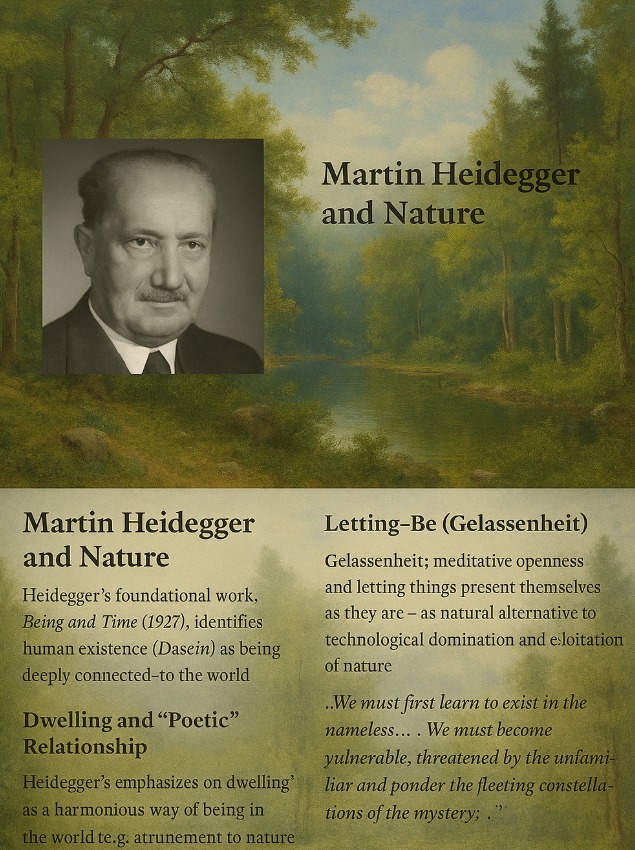Thierry Gaillard
Martin Heidegger’s connection with nature is deeply embedded in his existential philosophy. Cheri L. Hausmann
Particularly in his concepts of dwelling, being-in-the-world, and Gelassenheit (letting-be). He saw nature not as a collection of resources to be exploited but as something with which we must live in harmony. His idea of “dwelling” refers to a mode of existence where humans are attuned to the Earth and live in reverence and care for it, rather than dominating it through technology. This perspective was not just theoretical; Heidegger’s personal retreat to a hut in the Black Forest symbolized his commitment to simplicity and closeness to the natural world. He believed that modern technology alienates us from this connection by reducing nature to a “standing reserve,” or a set of tools for human use, thereby distorting our relationship with Being itself.
Heidegger also emphasized a meditative openness to the world, which he called Gelassenheit. This “letting-be” is a philosophical attitude that allows things to reveal themselves as they are, rather than imposing human will upon them. In this sense, nature is not simply a backdrop to human activity but an active participant in the unfolding of Being. Heidegger often turned to poetry—especially that of Hölderlin—to express this reverence for nature, which he saw as a source of mystery and truth that could not be fully captured by rational thought.
Though Heidegger was not a psychoanalyst, there are significant parallels between his thought and the aims of psychoanalysis. Both seek to uncover deeper layers of human existence that lie beneath everyday consciousness. In Heidegger’s view, reconnecting with nature is a way to rediscover authenticity and confront the mystery of Being, much as psychoanalysis attempts to recover the authentic self by exploring the unconscious. The alienation that Heidegger describes in relation to technology mirrors Freud’s concern that civilization represses natural instincts, leading to neurosis. Similarly, Jung’s emphasis on the symbolic and mythic dimensions of the psyche aligns closely with Heidegger’s poetic vision of human existence. Both thinkers suggest that healing and transformation come from re-establishing a connection with what is primal and often forgotten—whether it be the natural world or the unconscious depths of the self.
In this light, Heidegger’s philosophy can be seen as a kind of ontological psychoanalysis: a reflective journey aimed at restoring our relationship to the Earth, to Being, and to ourselves.
https://www.facebook.com/groups/165563067224915/permalink/2178871802560688

